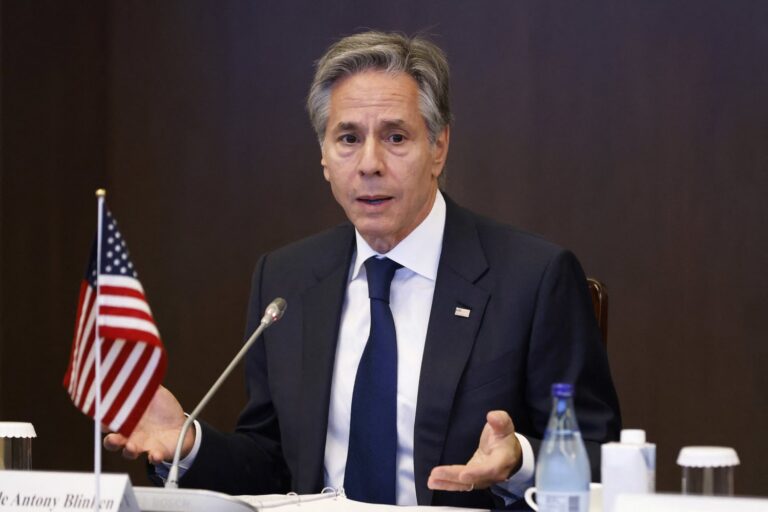TOKYO — The foreign ministers of Australia, India, Japan and the United States said Monday they were seriously concerned by threatening and dangerous actions in the South China Sea and pledged to strengthen maritime security in the region.
The joint statement was issued after talks between the so-called Quad countries in Tokyo attended by Australia’s Penny Wong, India’s Subrahmanyam Jaishankar, Japan’s Yoko Kamikawa and US counterpart Antony Blinken.
At security talks between the United States and Japan on Sunday, the two countries described China as “the greatest strategic challenge facing the region.”
“We are deeply concerned about the situation in the East and South China Seas and reiterate our strong opposition to any unilateral actions that seek to change the status quo through force or coercion,” the ministers said in a statement, without directly mentioning China.
The two leaders also expressed serious concerns about coercive and coercive actions, including the militarization of disputed areas in the South China Sea and the unsafe use of coast guard and maritime militia vessels.
Asked about the statement at a regular press conference on Monday, Chinese foreign ministry spokesman Lin Jian said the Quad was “artificially creating tensions, inciting conflict and suppressing the development of other countries.”
The two countries reached a tentative agreement in July aimed at easing tensions, but in recent months Chinese vessels have repeatedly clashed with Philippine ships seeking to resupply their forces at the disputed Second Thomas Shoal.
The Quad group said it was working on a range of efforts to maintain a “free and open maritime order,” including helping partners improve their domain awareness through satellite data, training and capacity building. It also announced plans to launch a new Law of the Sea Dialogue.
“By strengthening maritime security, we are charting a path toward a safer and more open Indo-Pacific and Indian Ocean region,” Blinken told reporters after the meeting.
“What does this mean in practice? It means strengthening the capacity of partners across the region to know what’s going on in their waters,” he added.
He said the United States would continue to work with partners to ensure freedom of navigation and the unimpeded flow of legitimate maritime commerce.
The United States announced plans on Sunday to significantly overhaul its military command structure in Japan, one of several measures the allies announced to address a “changing security environment,” citing a range of threats including China’s aggressive maritime activity.
After the meeting, Foreign Minister Kamikawa said, “Uncertainty is growing surrounding the international order and the international situation, with Russia continuing its acts of aggression in Ukraine, attempts to unilaterally change the status quo by force in the East China Sea and South China Sea, and North Korea launching ballistic missiles.”
The Quad ministers also pledged to advance cooperation in the area of cybersecurity to protect supply chains and critical infrastructure, including undersea cables.
After leaving Tokyo, Mr Blinken and Mr Austin are due to hold security consultations with another Asian ally, the Philippines, as the Biden administration seeks to counter an increasingly bold China.

